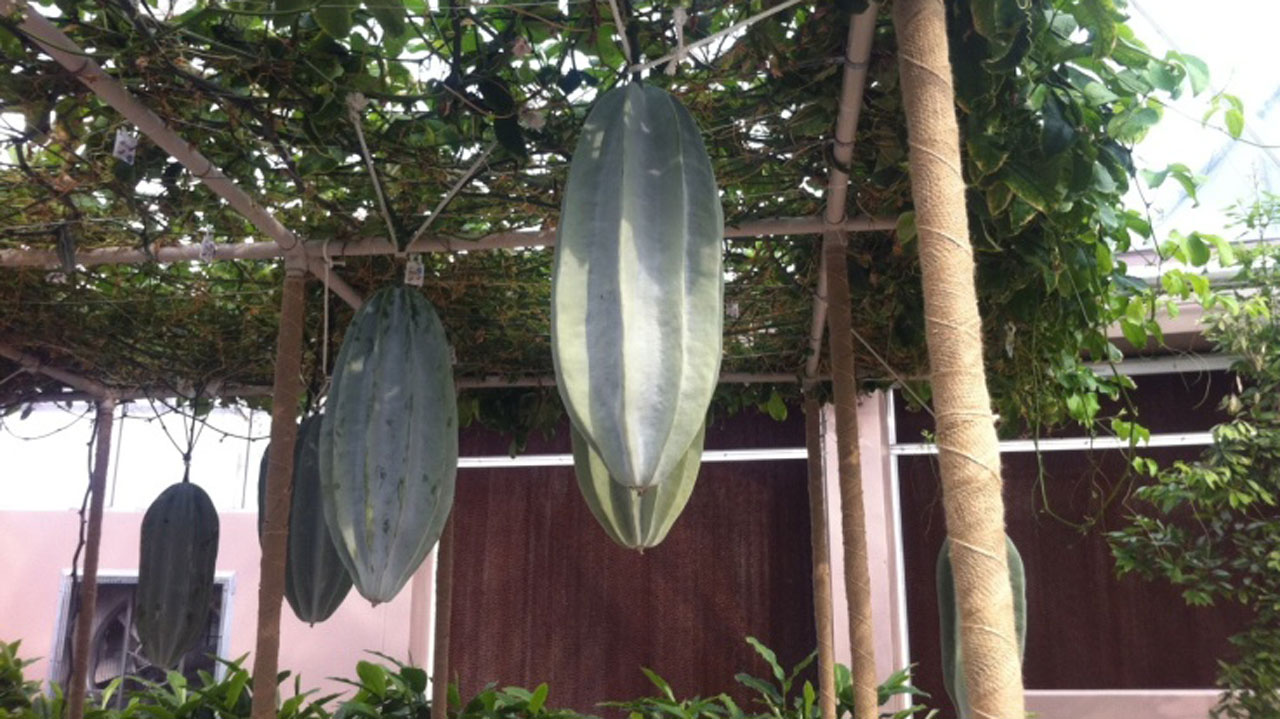Despite the importance of pumpkin as one of Africa’s most familiar crops, and considering its nutritional richness, climate resilience and versatility, the crop remains largely overlooked by farmers and formal agricultural systems in the continent.
Grown in home gardens, cooked in traditional dishes, and passed down through generations across the continent, pumpkin receives little research attention, lacks structured seed systems, and is rarely featured in national food security strategies.
Now, the narrative is about to change, as efforts led by the Crop Trust, through Building Opportunities for Lesser-known Diversity in Edible Resources (BOLDER) Initiative of the BOLD Project, are working to transform the fortune of the crop.
By conserving pumpkin’s genetic diversity and promoting its use as an ‘opportunity crop’, the initiative aims to unlock its full potential to improve nutrition, support women-led enterprises and strengthen climate resilience across Africa.
Pumpkins can be stored for months, helping families’ bridge hunger gaps. The seeds are roasted as snacks, and the pulp turned into baby food. They are everywhere – and yet, in some ways, almost invisible.
Despite being nutrient-rich, climate-resilient and deeply embedded in Ugandan culture, as well as other African countries, pumpkins have actually been rather neglected. They receive little research attention and seeds are hard to get.
It’s a paradox. This crop with the power to fight malnutrition, strengthen climate resilience and generate income is still often treated as an afterthought by scientists and policymakers.
The Crop Trust initiative, with BOLDER, is collaborating with Uganda’s National Agricultural Research Organisation (NARO) and others to conserve and study pumpkin diversity, and promote its use.
Bolder also works to get pumpkin diversity to farmers by supporting the farmers and entrepreneurs who produce and distribute seeds, and those who bring new pumpkin products to market.
The focus on the rejuvenation of this crop is due to the fact that pumpkins are rich in fiber, protein, calcium, potassium and iron. Their flesh is loaded with provitamin A carotenoids – natural pigments the human body converts into vitamin A. Traditional cooking methods like steaming and boiling help retain these nutrients.
Also, they thrive across the diverse climates of Uganda – from the humid east to the dry country in the north.
“Pumpkins can grow almost anywhere in Uganda,” says Dr John Adriko of NARO. “Through BOLDER we can conserve their diversity and build awareness of its importance, so this resilient crop can finally deliver on its promise for nutrition and food security.”
One of the barriers to better pumpkins as discovered by the initiative is lack of commercial seed system.
It was learnt that around 70 per cent of Ugandan farmers use saved seeds, often just exchanging them with neighbors. That means no formal breeding programmes, no quality control and no access to improved varieties that can boost yields or further improve shelf life.
“Farmers simply save or swap seeds,” says Adriko. “Once we characterise the diversity we have, we can build a proper seed system – and with better awareness, demand will follow.”
Decades of agricultural research in Uganda have centered on maize, beans, and cassava – leaving pumpkin behind. Only around 25 seed samples are conserved in the Uganda National Genebank and about 100 at Makerere University’s Regional Centre for Crop Improvement (MaRCCI). And many of these samples remain unstudied.
There are practical barriers, too. Pumpkins are bulky, costly to transport and prone to bruising, which limits long-distance trade. Local markets are informal and supply unreliable. Add to that lack of information about best management practices and you begin to see how an abundant and important crop can also be held back.
However, demand for pumpkin-based flours, porridges, oils and snacks are rising. Josmak Enterprises is a Kampala-based processor with continental distribution and ambitions.
Based on the increasing interest, they are building a business supporting rural women who can market pumpkin products in Uganda and Kenya. It is clear that with better seeds and more consistent supply, the pumpkin value chain could grow beyond home gardens.
With these potentials, the initiative reveals that the crop, hidden in plain sight, pumpkins in Africa may yet prove that sometimes the most powerful solutions are already growing in the continent’s backyards.






